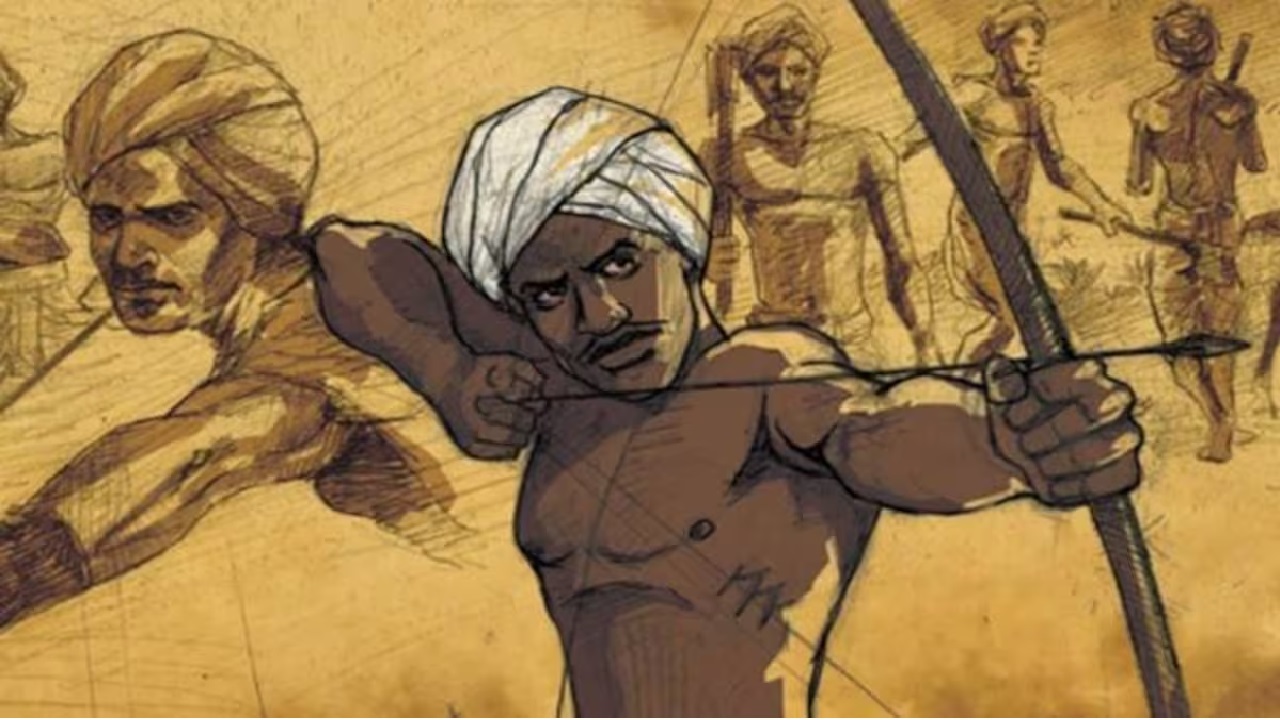Honoring a Revolutionary Legacy
The renaming of Sarai Kale Khan Chowk to Birsa Munda Chowk on the occasion of Birsa Munda’s 150th birth anniversary is a fitting tribute to a legendary figure in India’s freedom struggle. Announced by Union Minister Manohar Lal Khattar, this decision underscores the lasting influence of Birsa Munda’s contributions. A leader who emerged from the tribal community of Chotanagpur, Munda’s revolutionary zeal inspired resistance against British oppression and left an indelible mark on India’s history.
This move, coupled with the unveiling of a statue of Munda in Delhi, seeks to ensure that future generations remember his role as a leader of the Ulgulan Movement, a pivotal tribal rebellion against colonial exploitation.
Birsa Munda: The Father of the Earth
Birsa Munda, affectionately called “Dharti Aba” (Father of the Earth), was born in 1875 in what is now Jharkhand. He belonged to the Munda tribe of the Chotanagpur Plateau, an area that faced severe exploitation under British rule.
Munda’s leadership emerged during a time of rampant land grabbing by colonial authorities, which dispossessed tribal communities and reduced them to bonded labor. In response, he spearheaded a mass movement to reclaim tribal lands, challenging the British-imposed zamindari system and advocating for indigenous rights. His rallying cry unified tribes across the region, creating a formidable resistance against colonial exploitation.
Birsa’s Ulgulan (The Great Rebellion) was not only a fight for land and rights but also a cultural revival. He sought to rid his community of social evils, championing values rooted in tribal traditions and indigenous spirituality. His founding of the Birsait faith emphasized worship of a single god and promoted harmony and self-reliance.
Commemorating Birsa Munda’s Contributions
Birsa Munda’s legacy is profound, as he mobilized a marginalized community to stand against a mighty empire. His leadership led to significant reforms, including the Chotanagpur Tenancy Act, which restricted land transfers from tribal to non-tribal people, preserving tribal land rights.
Despite his revolutionary efforts being cut short by his untimely death at the age of 25 in British custody in 1900, Munda’s influence remains undiminished. His life has become a symbol of resistance and empowerment for tribal communities across India.
In recognition of his contributions, the Indian government declared November 15, Munda’s birth anniversary, as Janjatiya Gaurav Divas in 2021. This annual observance celebrates tribal heritage and honors the sacrifices of tribal leaders in India’s freedom struggle.
Birsa Munda Chowk: A Monument to Inspiration
The renaming of Sarai Kale Khan Chowk in Delhi as Birsa Munda Chowk carries significant symbolic weight. The busy junction, now adorned with a statue of Munda, serves as a reminder of his contributions to anyone visiting the area, including those at the Interstate Bus Terminal. Union Home Minister Amit Shah and Delhi LG VK Saxena, who unveiled the statue, emphasized Munda’s enduring relevance in modern India.
PM Modi pays tributes
Prime Minister Narendra Modi echoed these sentiments, celebrating Munda’s sacrifice and vision. Modi’s tributes, shared through heartfelt posts and audio-visual montages, highlighted the government’s commitment to commemorating Munda’s ideals. The Prime Minister’s visit to Bihar’s Jamui for the 150th birth anniversary celebrations further underscore Munda’s national significance.
The Larger Context: Tribal Heritage and Jharkhand’s Identity
The decision to honor Munda coincided with Jharkhand’s foundation day, observed on November 15. The state, rich in natural resources and tribal culture, was carved out of Bihar in 2000 on Birsa Munda’s birth anniversary. This dual celebration highlights the centrality of tribal leaders like Munda in shaping regional identity and aspirations.
Jharkhand’s history, irrigated by the struggles of its tribal communities, serves as a testament to the enduring relevance of Munda’s fight for justice and equality. The state continues to draw inspiration from his vision of self-reliance, cultural preservation, and equitable development.
Birsa Munda’s Enduring Legacy
The renaming of Sarai Kale Khan Chowk to Birsa Munda Chowk is more than a token gesture; it is a reaffirmation of the ideals he championed. As a revolutionary leader, cultural reformer, and defender of tribal rights, Munda’s legacy transcends time. His life story inspires not only tribal communities but also anyone who values freedom, justice, and self-determination.
In a world grappling with issues of inequality and cultural erosion, Birsa Munda’s fight for dignity and rights resonates strongly. The newly renamed Birsa Munda Chowk stands as a beacon of his legacy, urging all to remember and uphold the values he lived and died for.
(With inputs from agencies)








